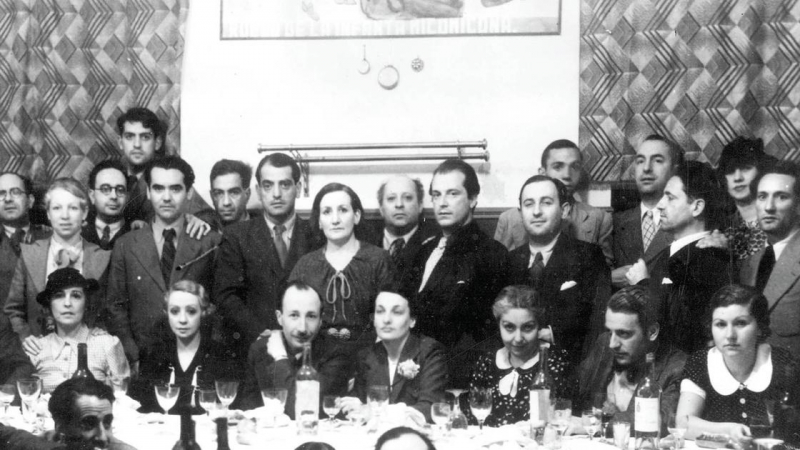Los Ausentes
2019Exhibited in Peckham 24 (Rehearsing the Real, curated by Tom Lovelace, 2019) and OAS Art Museum of the Americas, Washington DC (Nuestros Ancestros, curated by Fabian Gonçalves & Rafa Cruz, 2023).
Los Ausentes - The Absent Ones - echoes a table that was staged at the Venice Biennial of 1976, where Spain was unofficially invited to occupy the central pavilion. In the exhibition "Spain: Artistic Vanguard and Social Reality (1936 - 1976*)" the curators Valeriano Bozal and Tomàs Llorens set up an empty dinner scenario to honor the memory of missing artists who’d fled or disappeared during the country’s dictatorship.
This project restages the dinner table as a homage to the tertulias - social gatherings held in cafés and public spaces, where people meet to exchange ideas and debate current affairs. The deliberate absence of chairs becomes an invitation to return to shared rituals of conversation and presence. It asks us not only to remember those who are missing, but also to reclaim the table as a space of community, reflection, and resistance.



When the pure shapes sank
under the chirping of daisies,
I knew they had murdered me.
They combed the cafés, graveyards, and churches for me,
pried open casks and cabinets,
destroyed three skeletons in order to rip out their gold teeth. But they couldn’t find me anymore.
They couldn’t?
No, they couldn’t find me.
But they discovered the sixth moon had fled against the torrent, and the sea—suddenly!—remembered
the names of all its drowned.
When the pure shapes sank
under the chirping of daisies,
I knew they had murdered me.
They combed the cafés, graveyards, and churches for me,
pried open casks and cabinets,
destroyed three skeletons in order to rip out their gold teeth. But they couldn’t find me anymore.
They couldn’t?
No, they couldn’t find me.
But they discovered the sixth moon had fled against the torrent, and the sea—suddenly!—remembered
the names of all its drowned.
From Fable of Three Friends to Be Sung in Rounds
Federico García Lorca

Archive picture: artists group Generación del 27
ARTWORK DETAILS